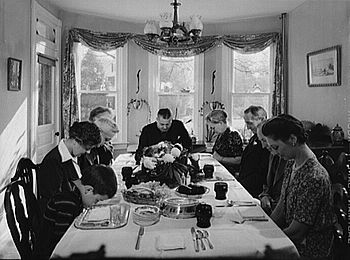One year, before Thanksgiving, I learned the meaning of giving thanks in everything. The verse doesn't say "Give thanks for everything." It only says to "give thanks in everything." Give thanks in whatever situation you find yourself. Give thanks when the light turns green, but give thanks when it turns red, too. In favorable situations we should give thanks to God and in tragic situations we are still required to give thanks. Bad things happen. I don't feel thankful for them. I had learned that I wasn't giving thanks for the situation, but God's intent for me was that I should give thanks. Everywhere in whatever season and whatever weather. God required me to give thanks to him. My feelings are not the focus of my thankfulness, but God's sovereignty is.
I'm thankful when I realize this is not my problem and God has a better plan that I have. My girls were old enough to memorize and I required them to learn this verse. I called it "the rule." When something happened that overwhelmed me, and I couldn't express thankfulness to God, I would say, "Somebody say the rule." One of them would repeat the verse out loud. Hearing it in real time in the midst of the event would refocus my faith, and suddenly the horrible was just inconvenient. I had another child after this had become my practice. As soon as she was old enough to know her name, she was indoctrinated, and she also became a prod to my conscience and faith.
After some years, I don't remember how many, I read the passage and continued to verse 19. I was astonished that the letters vibrated on the page. It said, "Quench not the Spirit." Boy sometimes the Word really speaks to you. I re-read the passage beginning at verse 16 Rejoice evermore. 17 Pray without ceasing. 18 In everything give thanks, for this is the will of God in Christ concerning you. 19 Quench not the Spirit. I read it again. Quench means to pour water on the fire. Don't act in ways that prevent God's Spirit from being active and alive in your situation, especially when it is a bad one. When we accept the facts as they really present themselves and recognize God's power and majesty, our faith is released for God to take action. When we whine and complain, we restrict God's freedom to act on our behalf. "Quench not the Spirit" became a corollary to The Rule, 1 Thessalonians 5:18. I find it very faith-building to read this whole section often. You may find other points and phrases that spur you on to obedience and faith in your journey with Christ. Underline them or keep a journal. Memorize them. They will sustain you in hard times. Sometimes they may be a bridge to a testimony.
I'm thankful when I realize this is not my problem and God has a better plan that I have. My girls were old enough to memorize and I required them to learn this verse. I called it "the rule." When something happened that overwhelmed me, and I couldn't express thankfulness to God, I would say, "Somebody say the rule." One of them would repeat the verse out loud. Hearing it in real time in the midst of the event would refocus my faith, and suddenly the horrible was just inconvenient. I had another child after this had become my practice. As soon as she was old enough to know her name, she was indoctrinated, and she also became a prod to my conscience and faith.
After some years, I don't remember how many, I read the passage and continued to verse 19. I was astonished that the letters vibrated on the page. It said, "Quench not the Spirit." Boy sometimes the Word really speaks to you. I re-read the passage beginning at verse 16 Rejoice evermore. 17 Pray without ceasing. 18 In everything give thanks, for this is the will of God in Christ concerning you. 19 Quench not the Spirit. I read it again. Quench means to pour water on the fire. Don't act in ways that prevent God's Spirit from being active and alive in your situation, especially when it is a bad one. When we accept the facts as they really present themselves and recognize God's power and majesty, our faith is released for God to take action. When we whine and complain, we restrict God's freedom to act on our behalf. "Quench not the Spirit" became a corollary to The Rule, 1 Thessalonians 5:18. I find it very faith-building to read this whole section often. You may find other points and phrases that spur you on to obedience and faith in your journey with Christ. Underline them or keep a journal. Memorize them. They will sustain you in hard times. Sometimes they may be a bridge to a testimony.



